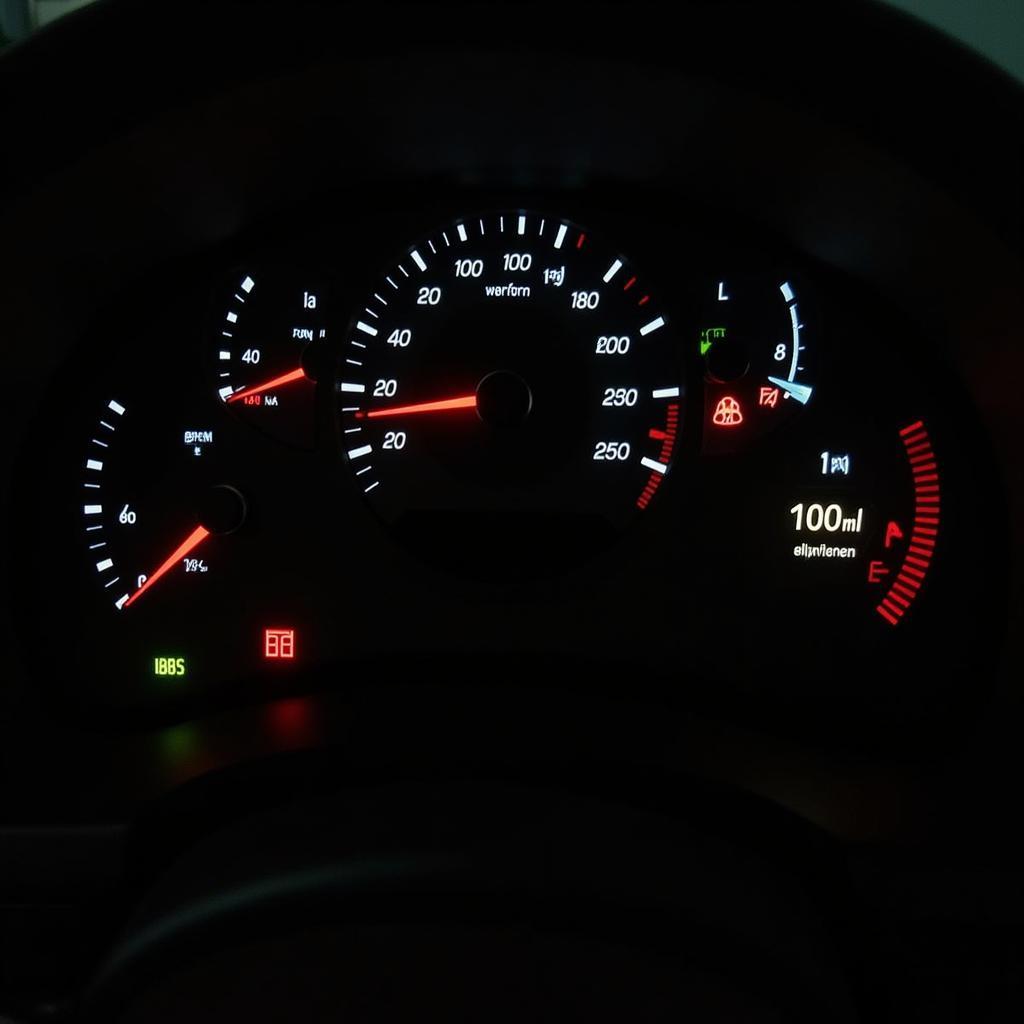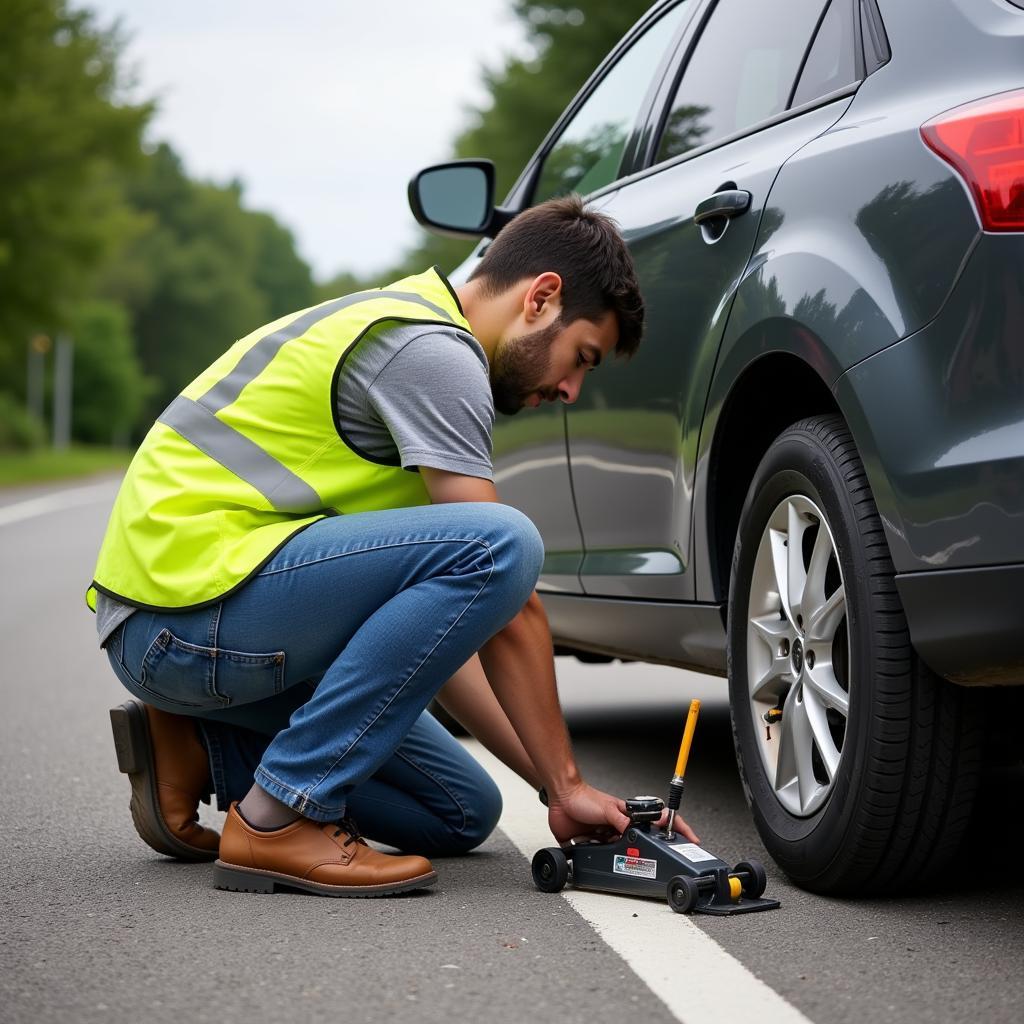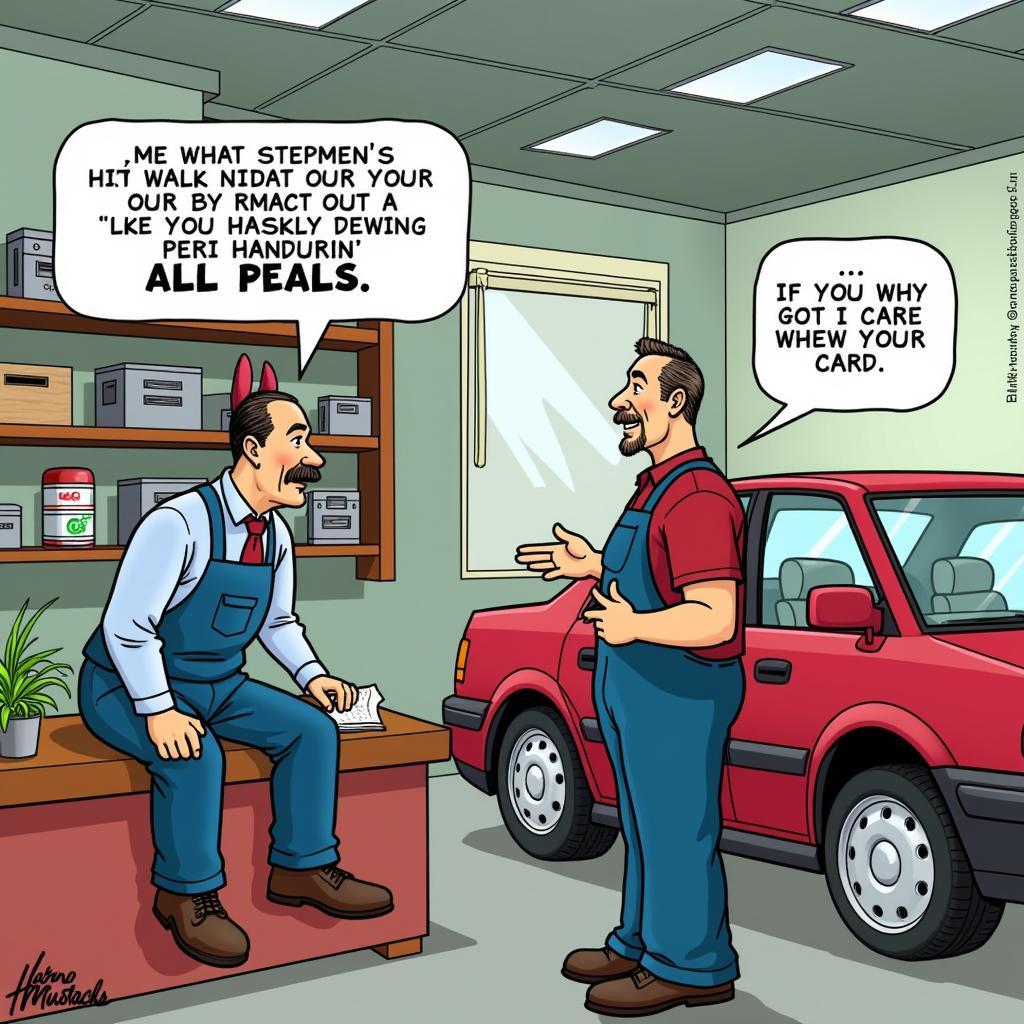Problem Behaviors Linked To Cars can be a real headache. Whether it’s a strange noise, a warning light on the dashboard, or decreased performance, these issues can disrupt your daily life and lead to costly repairs if ignored. This guide provides practical advice for car owners, mechanics, and technicians on troubleshooting and maintaining your vehicle to prevent and address these problem behaviors.
Identifying Common Problem Behaviors
Understanding the various problem behaviors linked to cars is the first step towards effective troubleshooting. These issues can manifest in several ways, including:
- Unusual Noises: From squeaks and rattles to grinding and knocking, unusual noises can indicate problems with brakes, suspension, engine components, or the exhaust system.
- Warning Lights: The dashboard is your car’s communication center. Ignoring warning lights, such as the check engine light, oil pressure light, or ABS light, can lead to severe damage.
- Performance Issues: Reduced fuel efficiency, difficulty starting, rough idling, or loss of power are all signs of potential problems that need attention.
- Fluid Leaks: Leaks under your car can range from relatively harmless (water from the AC) to serious issues like oil or transmission fluid leaks.
- Electrical Problems: Malfunctioning lights, power windows, or the radio can indicate problems with the car’s electrical system, including wiring, fuses, or the alternator.
 Dashboard Warning Lights Indicating Car Problems
Dashboard Warning Lights Indicating Car Problems
Diagnosing and Troubleshooting Problem Behaviors
Once you’ve identified a problem behavior, the next step is to diagnose the root cause. This can involve:
- Visual Inspection: Carefully examine the affected area for any visible signs of damage, leaks, or loose connections.
- Checking Fluids: Ensure all fluids, including engine oil, coolant, brake fluid, and power steering fluid, are at the correct levels.
- Using Diagnostic Tools: OBD-II scanners can provide valuable information about error codes and sensor readings, helping pinpoint the source of the problem.
- Consulting Repair Manuals: Refer to your car’s repair manual for specific troubleshooting procedures and wiring diagrams.
Preventive Maintenance: Avoiding Problem Behaviors
Regular maintenance is crucial for preventing problem behaviors linked to cars. A proactive approach can save you money and headaches in the long run. Key maintenance tasks include:
- Regular Oil Changes: Following the manufacturer’s recommended oil change intervals is essential for engine health.
- Tire Rotation and Pressure Checks: Properly inflated and rotated tires improve fuel efficiency and handling.
- Brake Inspections: Regular brake inspections ensure optimal stopping power and prevent premature wear.
- Fluid Top-offs and Changes: Maintaining proper fluid levels and changing fluids according to the recommended schedule is crucial for the smooth operation of various systems.
“Preventive maintenance is not an expense, it’s an investment,” says John Miller, a seasoned automotive technician with over 20 years of experience. “Addressing minor issues before they become major problems can significantly extend the life of your vehicle.”
Addressing Specific Problem Behaviors: What to Do When Trouble Strikes
While regular maintenance can prevent many problems, issues can still arise. Here’s what to do when you encounter specific problem behaviors:
Overheating Engine
- Pull over safely and turn off the engine.
- Check the coolant level.
- Do not open the radiator cap while the engine is hot.
- Have the cooling system inspected by a qualified mechanic.
Flat Tire
- Pull over to a safe location.
- Use a jack to lift the vehicle.
- Remove the flat tire and install the spare.
- Have the flat tire repaired or replaced as soon as possible.
 Changing a Flat Tire with Roadside Assistance Tools
Changing a Flat Tire with Roadside Assistance Tools
“A little knowledge goes a long way,” adds Sarah Chen, an automotive engineer specializing in vehicle diagnostics. “Understanding the basics of car maintenance can empower you to make informed decisions and avoid unnecessary expenses.”
Conclusion
Problem behaviors linked to cars are an inevitable part of vehicle ownership. However, by understanding common problems, practicing preventive maintenance, and taking proactive steps to diagnose and address issues, you can minimize the impact of these behaviors and keep your car running smoothly. For further assistance and expert advice, connect with AutoTipPro at +1 (641) 206-8880 or visit our office at 500 N St Mary’s St, San Antonio, TX 78205, United States. We’re here to help you navigate the complexities of car maintenance and keep you on the road.





Leave a Reply